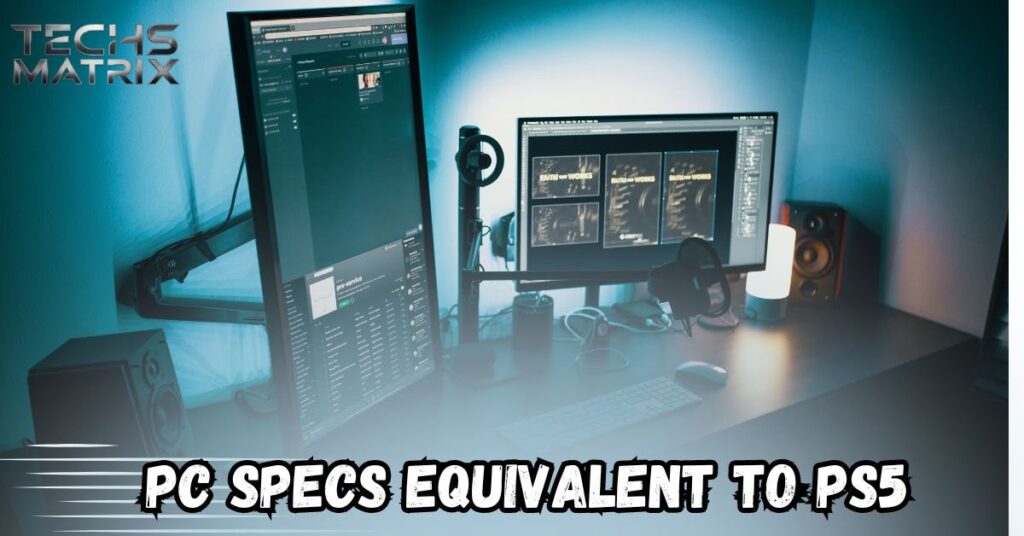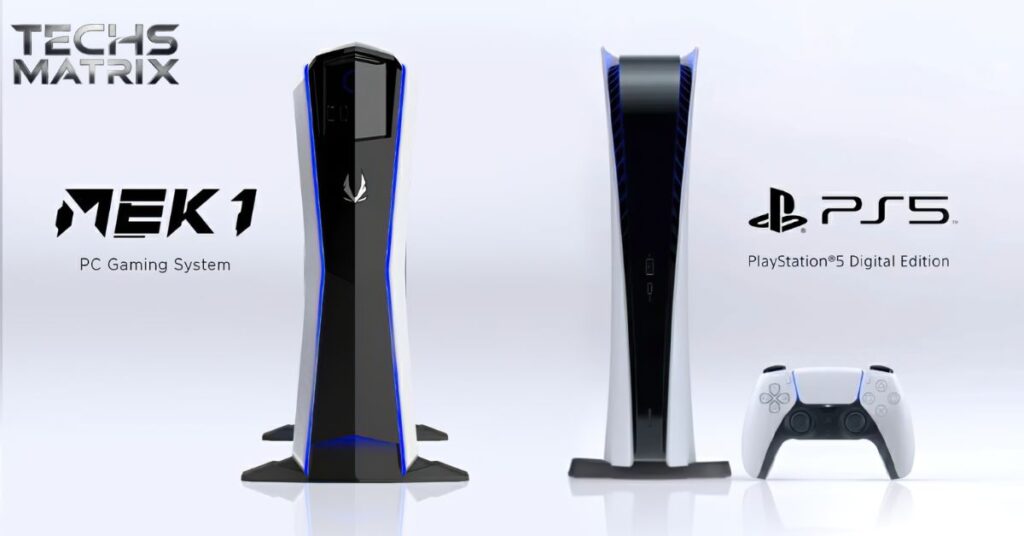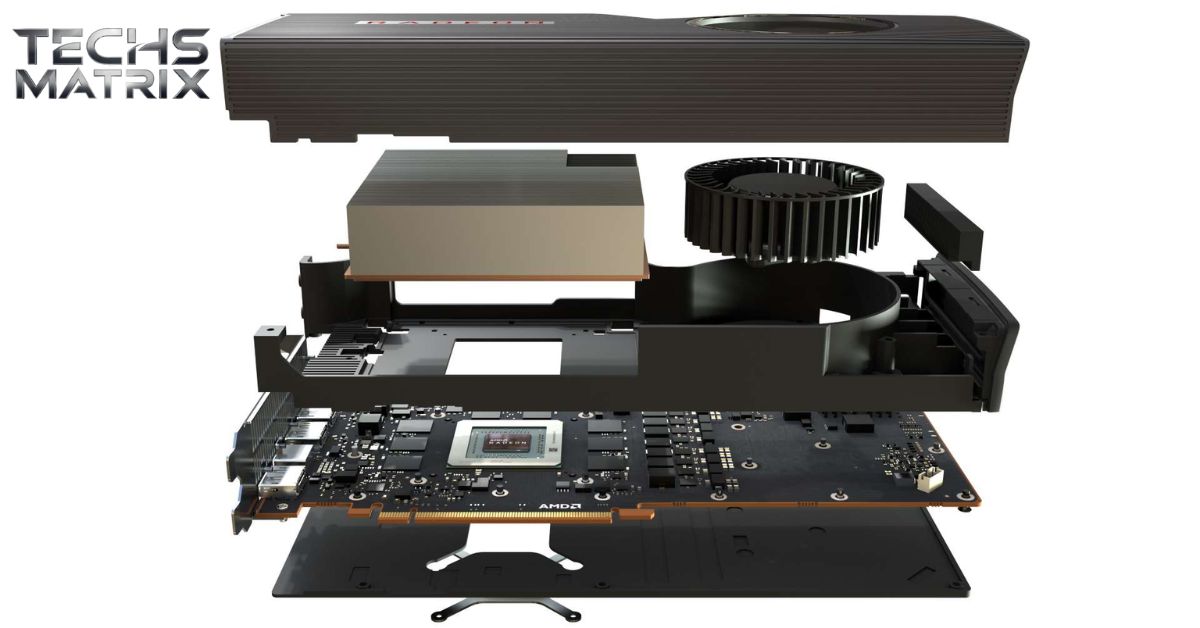PC specs are the technical details of a computer’s hardware components that determine its performance and capabilities.
Discover the exact PC specifications that match Sony’s powerhouse console. From processors to graphics cards, we’ll break down what it takes to build a PC that can go toe-to-toe with the PlayStation 5.
The gaming industry continues to evolve, the line between console and PC gaming becomes increasingly blurred. With the release of Sony’s PlayStation 5 many gamers and tech enthusiasts are curious about how this next-generation console compares to modern gaming PCs.
What is PS5?
The PlayStation 5 is Sony’s latest gaming console, released in November 2020. It offers powerful hardware for high-quality graphics, fast loading times, and immersive gameplay experiences, featuring a custom AMD processor, advanced GPU, and high-speed SSD storage.
A Next-Generation Gaming Console
The PlayStation 5 is Sony’s latest entry in their long-running series of gaming consoles. Launched in November 2020, it represents a significant leap forward in console gaming technology, offering features previously associated with high-end gaming PCs.
Key Features
- Custom AMD Zen 2-based CPU
- Custom RDNA 2 GPU with hardware-accelerated ray tracing
- Ultra-high-speed SSD
- 3D Audio
- 4K resolution support with up to 120 fps gameplay
Specification of PS5
To understand what PC specs would be equivalent to the PlayStation 5, we first need to examine the console’s specifications in detail.
CPU
- 8-core AMD Zen 2-based CPU
- Clock speed: Up to 3.5 GHz
GPU
- Custom RDNA 2 GPU
- 10.28 TFLOPs of processing power
- 36 Compute Units
- Ray tracing acceleration
Memory
- 16 GB GDDR6 RAM
- 448 GB/s memory bandwidth
Storage
- Custom 825 GB SSD
- 5.5 GB/s raw read speed, 8-9 GB/s compressed
Audio
- Tempest 3D AudioTech
Video Output
- Support for 4K at 120 Hz
- 8K support
What PC Specs are Equivalent to PS5?
Now that we’ve outlined the PlayStation 5 specifications, let’s explore what PC components would be necessary to match or exceed its performance.
PC Equivalent to PS5’s CPU

AMD Ryzen 7 3700X or Better
The PS5’s CPU is based on AMD’s Zen 2 architecture, similar to their Ryzen 3000 series processors. A comparable PC CPU would be:
- AMD Ryzen 7 3700X
- 8 cores, 16 threads
- Base clock: 3.6 GHz, Boost clock: up to 4.4 GHz
- 32 MB L3 cache
Newer options like the Ryzen 5 5600X or Ryzen 7 5800X would offer even better performance.
Intel Equivalents
For those preferring Intel processors, comparable options include:
- Intel Core i7-10700K
- 8 cores, 16 threads
- Base clock: 3.8 GHz, Boost clock: up to 5.1 GHz
- 16 MB Intel Smart Cache
PC Equivalent to PS5’s GPU
NVIDIA RTX 3060 Ti or AMD Radeon RX 6700 XT
The PS5’s GPU is custom-designed but based on AMD’s RDNA 2 architecture. Comparable PC GPUs include:
- NVIDIA GeForce RTX 3060 Ti
- 8 GB GDDR6 memory
- 4864 CUDA cores
- Ray tracing capabilities
- AMD Radeon RX 6700 XT
- 12 GB GDDR6 memory
- 40 Compute Units
- Ray tracing support
Both of these GPUs offer similar or better performance compared to the PS5’s GPU, including support for ray tracing and 4K gaming.
PC Equivalent to PS5’s SSD
PCIe 4.0 NVMe SSD
The PS5’s custom SSD is one of its standout features, offering exceptional speed. To match this performance, a PC would need:
- Samsung 980 Pro PCIe 4.0 NVMe SSD
- Sequential read speeds up to 7,000 MB/s
- Available in capacities up to 2 TB
Other high-performance PCIe 4.0 SSDs like the WD Black SN850 or Sabrent Rocket 4 Plus would also offer comparable performance.
Read This Blog:127.0.0.1:57573: Troubleshooting Connection Failure and Connections Issues
PC Equivalents to PS5’s Ray Tracing Capabilities
RTX 3000 Series or RX 6000 Series GPUs
Ray tracing is a key feature of the PlayStation 5, and to match this on PC, you’ll need a GPU with dedicated ray tracing hardware:
- NVIDIA RTX 3060 Ti or higher
- 2nd generation RT cores
- DLSS support for improved performance
- AMD Radeon RX 6700 XT or higher
- Ray Accelerators
- FidelityFX Super Resolution for performance boost
These GPU families offer ray tracing capabilities that meet or exceed what the PS5 can deliver.
PC Equivalents to PS5’s Audio System

Introduction to PS5’s Audio System
The PS5 features a custom audio engine called Tempest 3D AudioTech, designed to provide immersive 3D audio experiences.
Overview of PC Equivalent
While there’s no direct PC equivalent to the PlayStation 5 proprietary audio system, several technologies can provide similar immersive audio experiences:
- Dolby Atmos for Headphones
- DTS Headphone:X
- Windows Sonic for Headphones
Detailed Comparison
- Software Solutions
- PC audio solutions are primarily software-based, relying on audio processing algorithms.
- The PS5’s Tempest engine is a dedicated hardware solution.
- Compatibility
- PC solutions work with a wide range of headphones and speakers.
- PS5’s 3D audio is optimized for specific hardware.
- Customization
- PC audio solutions often offer more user customization options.
- PS5’s audio system is designed for ease of use and consistent performance.
- Game Support
- Both platforms require games to be specifically developed to take full advantage of 3D audio capabilities.
To achieve a similar audio experience on PC:
- High-quality sound card or DAC
- Premium headphones or surround sound speaker system
- Software solutions like Dolby Atmos or DTS Headphone:X
While these won’t exactly replicate the PlayStation 5 audio system, they can provide highly immersive audio experiences in PC gaming.
Read This Blog:Slope Unblocked Games: A Comprehensive Overview
Additional Considerations
RAM
- 16 GB DDR4-3200 RAM to match the PS5’s memory capacity and bandwidth
Motherboard
- PCIe 4.0 compatible motherboard to support high-speed SSDs and latest GPUs
- Examples: X570 or B550 for AMD, Z590 for Intel
Power Supply
- 650W or higher, 80+ Gold certified PSU to support high-performance components
Cooling
- Adequate cooling solutions (air or liquid) to maintain performance under load
Operating System
- Windows 10 or 11 for the latest gaming features and DirectX support
Building a PS5-Equivalent PC: Pros and Cons
Pros
- Flexibility and upgradability
- Multi-purpose use beyond gaming
- Wider game library and backward compatibility
- Potential for higher performance in some scenarios
Cons
- Higher initial cost
- More complex setup and maintenance
- Lack of PS5 exclusives
- Potential for inconsistent performance across games
Cost Comparison
Building a PC with specs equivalent to the PS5 will typically cost more than the console itself. While the PS5 retails for $499 (standard edition), a comparable PC could range from $1000 to $1500 or more, depending on component choices and market conditions.
Future-Proofing Considerations
When building a PC to match or exceed PS5 performance, consider future-proofing your system:
- Opt for a CPU with more cores/threads (e.g., Ryzen 9 5900X)
- Choose a GPU with more VRAM (e.g., RTX 3070 or RX 6800)
- Install 32 GB of RAM instead of 16 GB
- Select a larger capacity SSD (1 TB or more)
These choices may increase the initial cost but can extend the lifespan of your PC, allowing it to remain competitive with console performance for a longer period.
FAQ’s
Can a PC really match the PS5’s performance?
Yes, a well-configured PC can match or exceed the PS5’s performance in most aspects.
Is building a PS5-equivalent PC worth the extra cost?
It depends on your needs. A PC offers more flexibility and uses beyond gaming, but at a higher cost.
Will games look better on a PS5-equivalent PC?
Potentially, as PCs often offer more graphics settings and can be upgraded over time.
Can I use a PS5-equivalent PC for VR gaming?
Yes, a PC with these specs would be well-suited for VR gaming with headsets like Oculus Rift or HTC Vive.
How long will a PS5-equivalent PC remain competitive?
With proper component choices, such a PC could remain competitive for 3-5 years or more.
Conclusion
The PlayStation 5 represents a significant leap in console gaming technology, it’s possible to build a PC that matches or exceeds its performance. The key components for a PS5-equivalent PC include a high-performance CPU like the AMD Ryzen 7 3700X or better, a powerful GPU such as the NVIDIA RTX 3060 Ti or AMD Radeon RX 6700 XT, and a fast PCIe 4.0 NVMe SSD.
It is important to note that directly comparing consoles and PCs isn’t always straightforward. Consoles benefit from optimization for their specific hardware, while PCs offer more flexibility and upgradability.
Building a PC with specs equivalent to the PS5 will typically cost more upfront but offers advantages in terms of versatility, upgradability, and access to a vast library of PC games.

Sallas: Tech-savvy professional with 5 years in the industry. Skilled in software development, cloud computing, and AI. Known for innovative solutions and teamwork.








